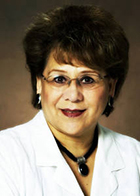I worked on this project with Novo Nordisk and the
Rosebud Sioux Tribe. The full article can be found here.
Article written by Steve Young:
August 25, 2013
The dark patches on their skin tell a troubling tale of life and poverty on the Rosebud Indian Reservation.
Doctors call them acanthosis nigricans, and they mark hundreds of Lakota children from places such as Rosebud and Milk’s Camp and Two Strike whose bodies are resisting insulin and teetering on the edge of diabetes.
Left untreated, many of those children could become part of a startling statistic — death from Type 2 diabetes on the reservation is five to six times the national average and worse than anyplace else in America.
But a Denmark-based company called Novo Nordisk is working to reverse that possibility with a $3 million gift to the Rosebud Sioux. The money is paying for a 13,000-square-foot wellness center, for a mobile clinic to bring health care to the most desolate corners of the reservation and for diabetes education.
“I applaud them,” said Dr. Donald Warne, former head of Sanford Health’s Office of Native American Health and now director of North Dakota State University’s master of public health program. “No other private sector entities have stepped forward onto the reservations to try to do something like this in a positive direction.”
The pharmaceutical giant Novo Nordisk is the world’s largest producer of insulin. It’s also heavily involved in nonprofit work, reaching out internationally to underserved communities.
Visit to the reservation
It happened upon Rosebud after one of its medical leaders visited western South Dakota in 2010.
Curt Oltmans, general counsel for Novo Nordisk, grew up in Norfolk, Neb., and would drive across the reservation in a meat delivery truck 30 years ago. He’s seen the challenges of life there, and now knowing the interest within the company for helping this reservation, he moved into a project leadership role.
Initially, the company met with the tribe’s diabetes prevention staff and gathered data about the prevalence of the disease on the reservation and the needs. Then they talked with tribal council members about administration and financing.
The council bought in during spring 2011. Before that, Novo Nordisk set up a $3 million trust it called the Native American Health Initiative. From that money, it was decided to spend a little more than $2 million on a new and expanded wellness center, and another $400,000 on a mobile unit that eventually could provide billable health care services relating to diabetes treatment.
'Only for diabetes prevention'
“The only thing we’ve asked the tribe to do is use this wellness center and mobile unit only for diabetes prevention and education. Those are the only strings attached,” Oltmans said.
The dedication of the wellness center near the Indian Health Service hospital in Rosebud was Friday. The possibilities for this expanded space are immense, said Connie Brushbreaker, director of the tribe’s diabetes
Fitness classes now can be held in the wellness building where space was too tight before, she said. There is dedicated education space, a kitchen to teach more healthful cooking, classroom space and Internet connectivity that will allow for distance learning, and office space.
“There will be three or four very basic exam rooms,” Oltmans said. “It’s hard for people to get physicals through Indian Health Service. We’re trying to get physicians into the center periodically to do that.”
More than a one-time thing
Mobile units that roamed the reservation in the past were there mostly to screen for heart disease, cancer and other ailments, but offered no real primary care or medical services, Warne said.
“With all the other units that came through the reservation, it was a one-time thing,” Brushbreaker said. “I heard a lot of complaints about no follow-up,” Brushbreaker said. “With our diabetes mobile unit, we’ll be able to go out continually, meet with patients and continue education. We’re not going to a community one time and that will be it.”
This unit will do X-rays, screenings and provide other services. If the program can gain recognition from external bodies such as the American Association of Diabetes Educators, it “can charge back for time, services and help them generate some income,” Oltmans said.
Beyond its capital investments, Novo Nordisk will cover operating costs for a while, Oltmans said. But getting the program to the point where it can bill Medicaid, Medicare and other insurance for services is critical.
Tribe to play key role in staffing
So is the tribe’s participation. So, for example, while Novo Nordisk will start out paying for the maintenance and insurance on the mobile unit, the tribe will provide staffing for it and the wellness center.
The effort’s third leg is the training and certification of diabetes education and prevention specialists to work with tribal members, Oltmans said. Their jobs will be convincing the people that Type 2 diabetes is preventable and that a diagnosis does not have to be a death sentence.
At 90 percent completion, the wellness center should be fully operational by mid-October, Brushbreaker said. “And the mobile unit,” she said, “will hopefully be operating much sooner than that.”
Oltmans said his company will “be very disappointed” if people aren’t going to the wellness center and the reservation’s diabetes numbers don’t drop dramatically.
Warne and Brushbreaker don’t believe that will be a problem.
“Their existing wellness center already does a very good job of tracking the number of people using their services and a good job of tracking health measures as far as managing or preventing diabetes,” Warne said. “My sense of it is they will see a dramatic increase in wellness center utilization because they have more capacity. Because of that, more physical activity should translate into less diabetes and less complications.”
















































